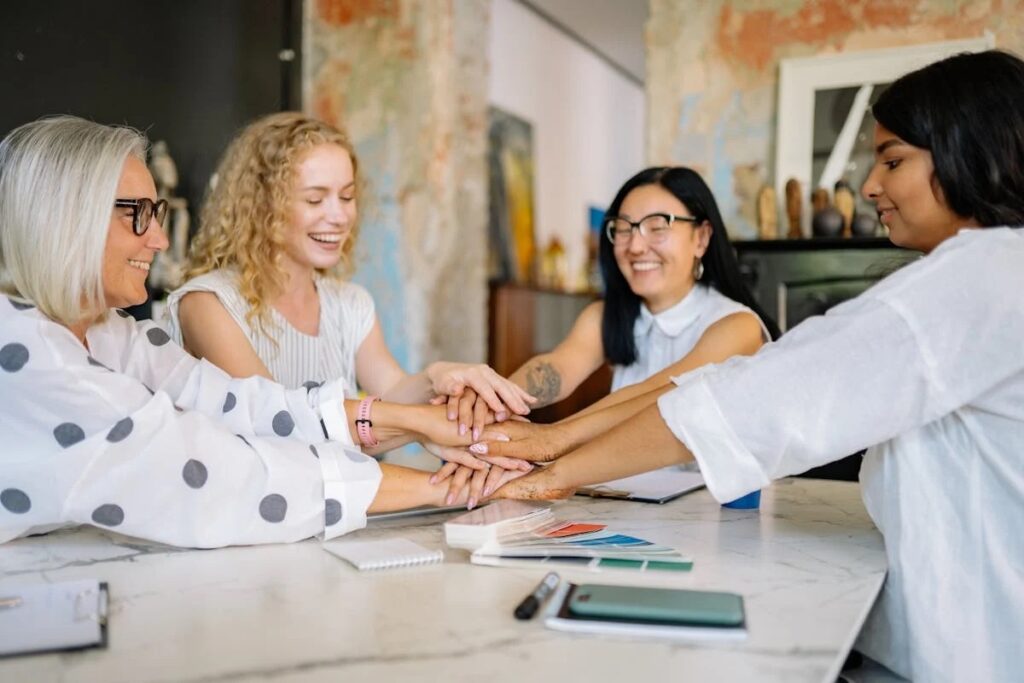
There are truths that lie so close to the heart of human experience that we pass them by daily without recognition. We step over them as one steps over a sleeping beggar in the street—not out of cruelty, but because the sight of them touches a nerve we cannot bear to feel. One such truth is this: we are creatures capable of choice, and yet so often we live as though we are not.
The world in which we find ourselves has been shaped by a law of conflict. The animal devours to live, the storm flattens the tree without remorse, and the market awards the cunning over the meek. We speak of evolution as if it were our gospel, its pages inked with the struggle for dominance. And yet, unlike the beasts and the winds, we are not bound to this rhythm. We possess a secret, fragile power: the capacity for reflection, for reason. With it, we can choose a different path—not of domination, but of cooperation.
This is not sentimentality. Cooperation is not the indulgence of the weak but the deliberate stance of the free. It is a rational act, born from the understanding that in many matters, to work with another is to preserve oneself. And more than this—it is to make life bearable, perhaps even meaningful. For what is the good of survival, if it is achieved at the cost of one’s soul? The man who wins by crushing his neighbor carries with him the silent weight of that crushed humanity. No empire of one’s own design can provide refuge from the cold that follows.
The marketplace teaches us to calculate gain. But it forgets to remind us that the highest profit is not always the one that fattens the purse. A village that eats together may be poorer in coin, yet richer in spirit. A neighborhood that shares its burdens may stumble less often, for its feet and hands are many. These things cannot be tallied on ledgers, and so we overlook them. But to overlook them is to overlook the essence of what it means to live not merely as organisms, but as persons.
Why, then, do we hesitate to cooperate? Why does the rational choice appear irrational in the haze of daily life? The answer lies, perhaps, in fear. To cooperate is to risk. It is to open the hand that might otherwise clutch. It is to trust that the other, too, might act from reason or goodness or need, and not from hunger for conquest. And yet, all genuine life is risk. To love is a risk. To speak the truth is a risk. Even to hope is a risk. And still we do these things—not because we are guaranteed reward, but because they are the soil in which humanity grows.
There is also pride. The temptation to stand alone, to be the lone hero, is woven deeply into the stories we tell ourselves. But the hero alone is a myth. Even the solitary saint rests on the prayers of the nameless faithful. Even the martyr is remembered because others remember. Every act of greatness—if it is truly great—echoes through a web of relationships, each thread held together by cooperation, however quiet, however unseen.
So let us not be deceived by the brutal logic of a world enthroned in competition. Let us remember that even within that world, we retain the faculty to choose. Not just once, not just in grand gestures, but daily, in the small ways we meet each other. In the offering of a moment, the sharing of a task, the refusal to exploit another’s weakness. Cooperation begins not in theories but in acts.
On the local level, it may be a neighbor helping another carry groceries, or a group pooling resources to care for the elderly. On the wider scale, it may be cities twinning across oceans, or strangers translating one another’s pain into action. The form does not matter. What matters is that we act out of the recognition that we are not isolated fragments of existence, but parts of a whole.
And if ethics alone does not convince us, then let prudence speak. In our age of global entanglement, no nation, no community, no person, can exist as an island. Climate, disease, conflict—all these forces disregard our boundaries. If we do not cooperate by choice, we will be driven to it by necessity. And then it will no longer be a question of virtue, but of survival.
To choose cooperation, then, is to affirm the better part of ourselves. It is to insist that, while we cannot undo the law of competition, we can temper it. We can interrupt it. We can, in brief moments of grace, override it. And in those moments, we come closer to what is sacred—not by withdrawing from the world, but by transforming it from within.
Let us not wait for disaster to teach us what reason and compassion have already revealed. Let us instead meet the world with open eyes and open hands. For we are human, and that is both our burden and our gift: to choose, and to choose well.
Join us in making the world a better place – you’ll be glad that you did. Cheers friends.